Tehran University Deploys More Hijab Enforcers
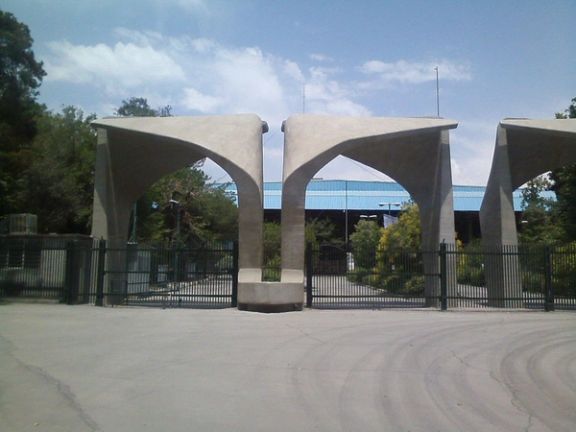
The University of Tehran has deployed hijab enforcers amidst nationwide rebellion of mandatory headscarves.

The University of Tehran has deployed hijab enforcers amidst nationwide rebellion of mandatory headscarves.
Mehdi Shahbazi, Deputy of Cultural and Social Affairs of the University disclosed the issuance of a "Moral Charter" aimed at enforcing compulsory hijab regulations among students and professors. Shahbazi said “serious measures” would be taken against those who defy the hijab policy.
Shahbazi also cautioned employees and professors, stating that “while the university adopts a persuasive and dialogue-based approach towards students, a different stance would be taken when dealing with professors and staff.”
The announcement comes amidst increasing pressure on students and professors, coinciding with the suppression of the Women, Life, Freedom movement. Hundreds of students and professors have faced suspension or expulsion as a result of non-compliance with hijab laws.
Iranian universities have remained focal points of dissent against the government in recent years, with protests frequently emerging on campuses.
Recent information received by Iran International suggests heightened surveillance and pressure on students, including reports of security forces covertly taking photos of students and sending them to their families without their knowledge.
Furthermore, some students have reported that their families have been contacted and informed by university security regarding their activities.
In addition to deploying officers to enforce compulsory hijab on university campuses, the government has expanded its efforts to enforce hijab in public spaces, particularly in the metro and throughout the city. Patrols and surveillance have increased as dissent continues.
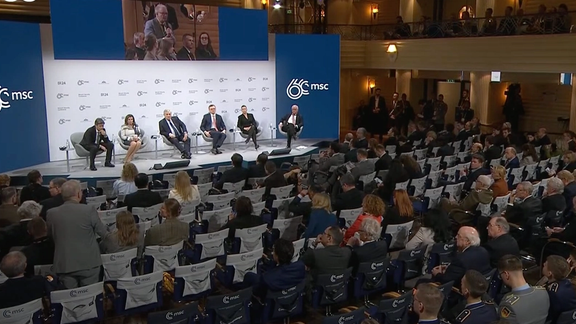
In spite of Iran's absence from one of the world's leading security conferences, the regime remained among the top topics in the fight against terror.
Approximately 50 heads of state and government, alongside around 100 ministers participated in this year's Munich Security Conference, the second consecutive year that Tehran and Moscow did not receive invitations.
The event took place against the backdrop of Iran's proxy war with militias wreaking havoc across the Middle East in alliance with the Islamist group Hamas, which invaded Israel on October 7, killing 1,200 mostly civilians and capturing at least 250 hostages into Gaza.
Iran was excluded from the conference last year following violent protests in 2022 during which hundreds were killed, including numerous children, and thousands more detained. The nationwide demonstrations erupted following the death in custody of 22-year-old Mahsa Amini at the hands of Iran’s hijab police, representing one of the most significant challenges to the clerical regime since its establishment 45 years ago.
Russia's exclusion from this year's conference has been linked to its continued invasion of Ukraine, which began in February 2022. However, this year the event was overshadowed by the mysterious death of Russian opposition leader Alexei Navalny in Russia’s Penal Colony No. 3 just above the Arctic Circle on Friday.
As has become the norm in events about international security, participants of the Munich conference engaged in intense discussions regarding Iran's human rights violations, destabilizing activities and its role in global conflicts. Additionally, concerns were raised about Iran's supply of drones and missiles for the Russian invasion of Ukraine, a partnership that has exacerbated tensions in the region and raised alarm among international security experts.
Referring to the current Middle East conflict that has been spiraling across the region since the October 7 attack by Iran-backed Hamas, US Secretary of State Antony Blinken emphasized the need to contain Iran to have “an integrated region where people are actually working together for the common good.”
He described Iran as “the number one threat” to the security of Israel as well as the security of many other countries, saying that this is only possible if “Iran is isolated along with all of its proxies.”
“That future, that path is there, it’s clear, it’s hard, it’s complicated, but it’s real. The alternative is an endless repetition of the cycle that we’ve seen year after year, decade after decade, generation after generation,” he stated.
Prominent Iranian activist Masih Alinejad was one of many calling for the designation of Iran's Revolutionary Guard (IRGC) as a terrorist organization, a step already taken by the United States. How can we reach peace and security in the world without designating the Revolutionary Guards as a terrorist organization?", she said, the military organization involved in almost all the regime’s activities in Iran and abroad.
Alinejad highlighted the human rights abuses perpetrated by the IRGC domestically, citing the case of Kosar Eftekhari, a protester who lost her eyesight after being shot by security forces during a crackdown in 2022, as emblematic of the regime's brutality. “I am here today with a woman who was in the front line of last year’s uprising ... she lost her eyes because of the Revolutionary Guards,” she told the audience.
“The Islamic Republic is helping Putin, is helping Hamas, all the proxies in Yemen... unfortunately, dictators are more united than democratic countries.” She urged a common strategy to isolate Islamic Republic and “address (Iran’s Supreme Leader Ali) Khamenei and his gang of killers the way that you address (Russian President Vladimir) Putin," she said.
German Foreign Minister Annalena Baerbock explained the legal constraints hindering the designation of the IRGC as a terrorist organization in the European Union. While acknowledging Iran's destabilizing activities, Baerbock emphasized the importance of adhering to the rule of law and the need for sufficient evidence to justify such a designation under European legal frameworks.
Her remarks have sparked anger from activists who reiterated that there is sufficient evidence and no legal obstacle for such an action. The European Parliament voted overwhelmingly in favor of a measure calling for the European Union to designate the IRGC as a terrorist organization in January 2023.
Unlike the United States which in 2019 under former President Donald Trump put the IRGC on its Foreign Terrorist Organizations (FTO) list, European countries have avoided the designation in the past few years and prioritized diplomacy with the Islamic Republic in the hope of concluding a nuclear deal. However, it has only emboldened the regime which has in the last year banned the UN's nuclear inspectors, freed up frozen funds in a hostage exchange with the US, and accelerated its nuclear program.
Additionally, in the last two years alone, dozens of IRGC plots have been foiled by countries including the UK, US, Israel, Cyprus and Argentina, with calls from the world's leading security and intelligence leaders to take action. In the UK, the head of MI5 called Iran one of the country's biggest threats last year after revealing the scale of plots foiled on British soil, calling it "the state actor which most frequently crosses into terrorism".
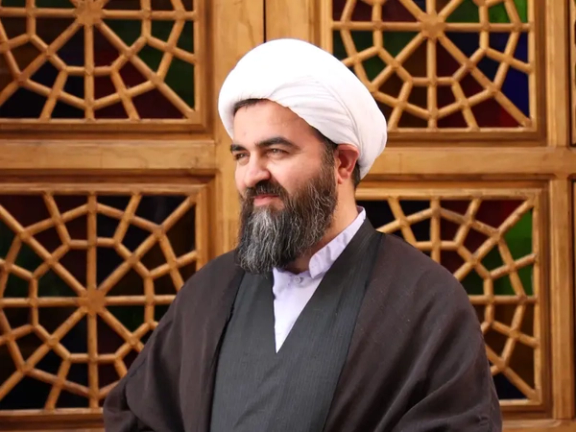
A seminary teacher was arrested by IRGC intelligence officers on Saturday in the religious city of Qom for voicing criticism of the government and the country's Supreme Leader.
Last week, on the anniversary of the Iranian revolution, Mohammad-Taghi Akbarnejad said, "This day symbolizes the negation of freedom and republicanism." He also recalled Ayatollah Khamenei's pre-revolution promise of granting people the freedom to criticize leaders.
He has been summoned and interrogated multiple times by security forces and the special clerical court in Qom, notorious for his fearless criticism of the country's Supreme Leader. However, judicial or security sources have yet to confirm or deny the latest development.
Social media images, including those on Akbarnejad's Instagram account, depict supporters of the Islamic Republic gathering in Qom and demanding action against the critical cleric prior to his latest arrest.
The Islamic Republic's security institutions have a history of dealing with clerics critical of Supreme Leader Ali Khamenei's policies. These clerics have often faced harsh sentences, including imprisonment and expulsion from the clergy by the special clerical court.
His arrest follows the detainment of Abdolhamid Masoumi Tehrani, a critical cleric from Tehran, in October 2022, where some of his personal belongings were confiscated. Similarly, in 2018, Hassan Aghamiri, an active cleric on social media, received a two-year suspended sentence and permanent expulsion from the clergy by Branch 2 of the Special Clerical Court.
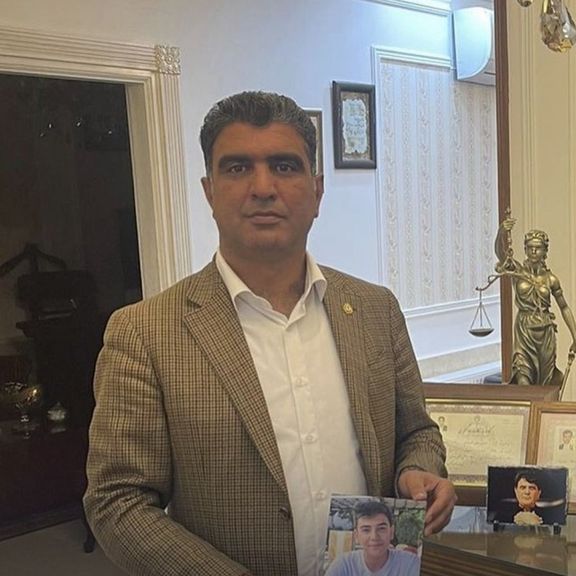
Khosrow Alikordi, an Iranian lawyer known for advocating in the cases of protesters' families, has been transferred to Vakilabad Prison to begin a one-year sentence.
Upon completion, he faces a two-year ban from legal practice.
A day before his imprisonment, Alikordi addressed Iran's Supreme Leader, Ali Khamenei, in a video message, accusing the regime of hypocrisy. "The Islamic Republic celebrates its revolution anniversary with freedom as a core slogan. Yet now you are the jailer," he said.
In January, the judiciary accused Alikordi of engaging in "propaganda against the Islamic Republic system and in favor of groups opposing the regime."
The court referred to Alikordi's engagements with both national and international media, along with his online activities and writing as evidence of "propaganda against the system."
Alikordi's harassment began when he represented families affected by the 2022 uprising.
The Iranian government has a history of targeting and detaining lawyers, civil activists, and political dissenters. The crackdown has escalated since the nationwide protests against the Islamic Republic in September 2022.
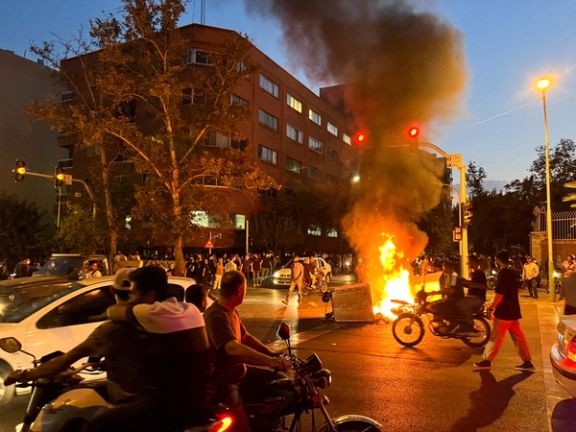
While Iran suffers its worst social and economic unrest since the 1979 revolution, the Kayhan daily, linked to Iran's Supreme Leader, claimed Iran would resemble present-day Saudi Arabia under the Pahlavi monarchy rule.
"Those rejected by the people [the Pahlavi royals] claim that if the Pahlavi government had remained, Iran would have moved towards progress and development, but in the most optimistic scenario, we would have the situation of today's Saudi Arabia," wrote Kayhan.
However, Iranians have led the biggest uprising against the government since the founding of the Islamic Republic since the 2022 Women, Life, Freedom movement, which has been met with brutal suppression by the regime.
Surging executions have seen hundreds of dissidents killed and hundreds of peaceful protesters murdered as the regime struggles to quash dissent and discontent. In the upcoming elections, turnout is expected to reach less than 15 percent.
However, the bizarre comparisons with Saudi Arabia, which last year resumed diplomatic ties with Iran, could only be wished for by the regime which is crippled under international sanctions for its nuclear program, suppression of unrest and most recently, its support of Russia's war on Ukraine.
Over the past two decades, Saudi Arabia's GDP has surged from $200 billion to over $800 billion, fueled largely by robust oil revenues and strategic economic diversification efforts. The kingdom, with its vast petroleum reserves, remains a dominant force in global oil markets and actively pursues initiatives to expand its non-oil sectors and foster employment among its nationals.
Despite possessing considerable oil and gas resources, Iran's GDP has dwindled to under $250 billion, experiencing a significant decline from $480 billion in 2016. Iraq, despite internal challenges, has surpassed Iran's GDP, while even non-oil producing Turkey boasts a GDP surpassing Iran's by over $800 billion.
Iran's economy, characterized by statist policies, faces systemic inefficiencies and a lack of private-sector-led growth. In contrast, Saudi Arabia's concerted efforts towards economic diversification and investment in sectors beyond oil underscore a divergent trajectory from Iran's economic struggles.
The kingdom's strategic initiatives to bolster education, job training, and attract foreign investment stand in stark contrast to Iran's economic challenges, marked by inflation, unemployment, and a persistent brain drain.
A 2022 survey by Netherlands-based Gamaan institute found that 41 percent of respondents wanted the overthrow of the Islamic Republic, exiled prince Reza Pahlavi the most popular alternative to take over.
In contrast to the Kayhan commentary, the royal family is still viewed with fondness. Mohammad Reza Pahlavi, overthrown by the Islamic Revolution of 1979, was viewed positively by 64% of respondents.
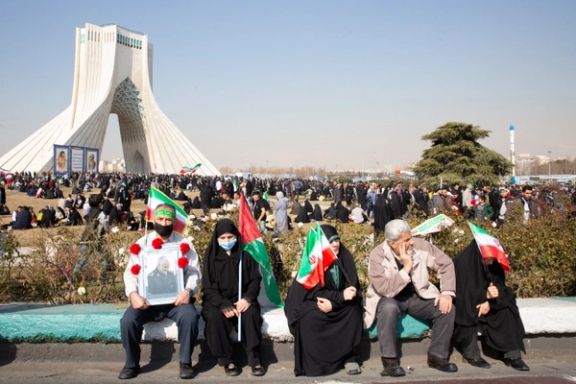
Anniversary rallies for the birth of the Islamic Republic fell flat as Iranians rejected the celebrations amidst ongoing suppression and economic depression.
Images and videos circulated on the main day of celebrations marking the 45th anniversary of the 1979 revolution depicted a stark contrast from previous years, with no apparent presence of people to fill the streets.
In a bid to conceal the failure, Supreme Leader Ali Khamenei said, "People across the country made efforts and showed their enthusiasm and fervor. This year, the people displayed revolutionary pride to the world."
The ten-day period from February 1 commemorates Ayatollah Ruhollah Khomeini's arrival in Tehran from Paris in 1979, culminating in the revolution's victory on February 11th.
People shunned the rallies despite efforts by the government included relaxing enforcement of compulsory hijab, one of the pillars of the 2022 Women, Life, Freedom uprising, and providing recreational activities on the streets. Crowds were sparse and venues largely empty.
Nonetheless, government-controlled media and officials hailed the celebration of the revolution as "epic".
Meanwhile, Iranians in many European and North American cities took to the streets to protest against human rights abuses in Iran as the regime continues its crackdown and accelerates execution of dissidents.
The efforts to portray a veneer of national unity come on the eve of the upcoming elections where voter turnout is expected to be below 15 percent, the country's apathy at an all time low amidst social and economic turmoil.